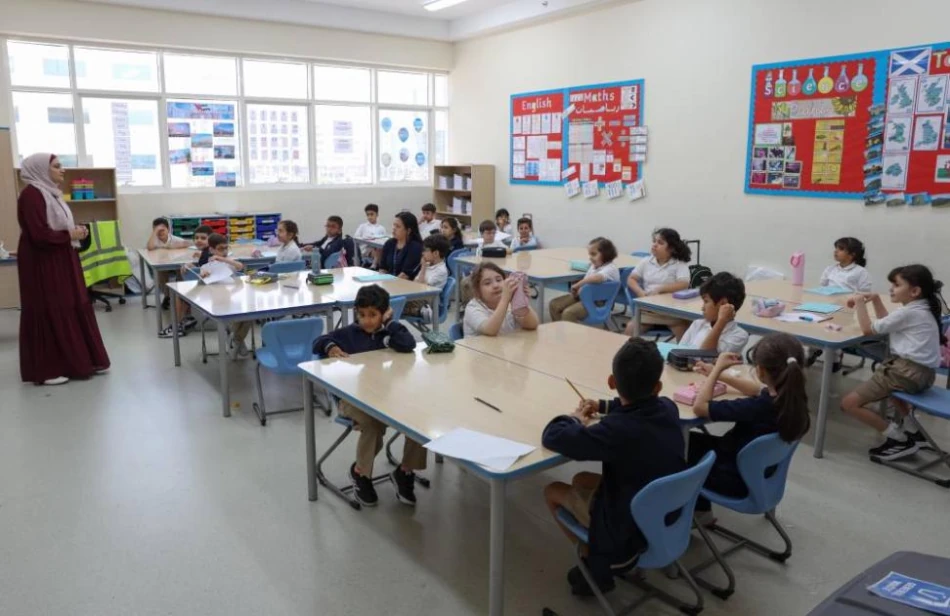
Vacant Seats in Schools Due to Withdrawals and Unpaid Fees: Addressing the Education Crisis
Abu Dhabi Private Schools Struggle with Empty Seats Despite High Demand
Two weeks into the new academic year, several private schools in Abu Dhabi are grappling with vacant seats across multiple grade levels, exposing underlying challenges in the emirate's competitive education sector. While most institutions report near-full capacity, student withdrawals driven by financial pressures, unpaid fees from previous years, and logistical issues are creating unexpected gaps that schools are scrambling to fill through flexible enrollment policies.
The Enrollment Paradox: High Demand, Persistent Vacancies
The situation presents a curious contradiction in Abu Dhabi's education landscape. Despite strong overall demand that typically sees schools reach capacity months before the academic year begins, administrators are dealing with last-minute withdrawals that leave classrooms partially empty.
School directors interviewed reveal that while registration for the 2025-2026 academic year began as early as March, with many institutions stopping enrollment once capacity is reached, the reality on the ground tells a different story. Student withdrawals occur even after fees are paid, creating a ripple effect that impacts classroom planning and resource allocation.
Financial Pressures Drive Student Exodus
The most significant factor behind these vacancies appears to be financial strain on families. School administrators report that accumulated unpaid fees from previous years can reach between AED 20,000 to AED 30,000 per student, effectively blocking re-enrollment until debts are cleared.
Additional costs beyond tuition—including books, transportation, and other school expenses—are pushing families to reconsider their educational choices. Some parents are opting for more affordable institutions or schools closer to their residences to reduce transportation costs.
Market Dynamics and Strategic Responses
The Abu Dhabi Department of Education and Knowledge (ADEK) maintains strict capacity limits, with recommendations of 30 students per classroom. Schools cannot exceed their approved capacity without regulatory approval, creating a delicate balancing act between meeting demand and maintaining educational standards.
Several institutions have responded by opening additional sections when numbers justify it. One school recently opened a new Grade 9 advanced section for girls after enrollment reached 36 students, demonstrating the flexibility required to manage fluctuating demand.
Waitlist Management as Competitive Advantage
Schools are increasingly relying on sophisticated waitlist systems to manage capacity. Priority is typically given to siblings of current students and families living in proximity to the school. Some institutions report waitlist conversion rates of up to 99%, with remaining seats filled almost immediately through their reserve lists.
Regional Context and Broader Implications
This phenomenon reflects broader trends across the Gulf's private education sector. Similar to patterns seen in Dubai and other emirates, Abu Dhabi's education market is experiencing the tension between premium pricing and economic pressures on expatriate families.
The situation also highlights the transient nature of the UAE's expatriate population, where job relocations and visa changes can trigger sudden school transfers. This mobility creates both challenges and opportunities for educational institutions seeking to maintain stable enrollment numbers.
Curriculum Competition Intensifies
Another factor contributing to seat vacancies is the ongoing competition between different educational curricula. Parents are increasingly switching between British, American, and Arabic curriculum schools, seeking the best fit for their children's future educational paths.
This curriculum shopping behavior, while beneficial for educational diversity, creates planning challenges for schools that must anticipate not just enrollment numbers but also the specific educational preferences of their target demographics.
Looking Ahead: Adaptation and Opportunity
School administrators expect most vacant seats to be filled within the first few weeks of the academic year as transfer processes complete and families finalize their educational decisions. The flexibility shown by both schools and ADEK in managing these transitions suggests a maturing education market that can adapt to changing family needs.
For investors and education sector stakeholders, these enrollment fluctuations signal both the resilience and challenges of the UAE's private education market. Schools that can effectively manage waitlists, offer flexible payment options, and maintain strong community connections are likely to emerge stronger from these periodic enrollment disruptions.
The current situation ultimately reflects the dynamic nature of Abu Dhabi's education sector—one that must balance premium educational offerings with the practical realities of expatriate family life in a competitive regional market.
Most Viewed News

 Omar Rahman
Omar Rahman






